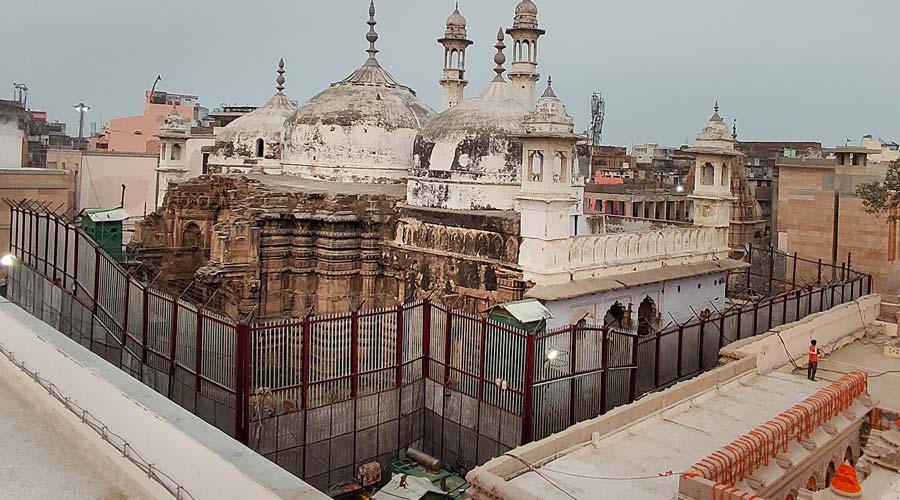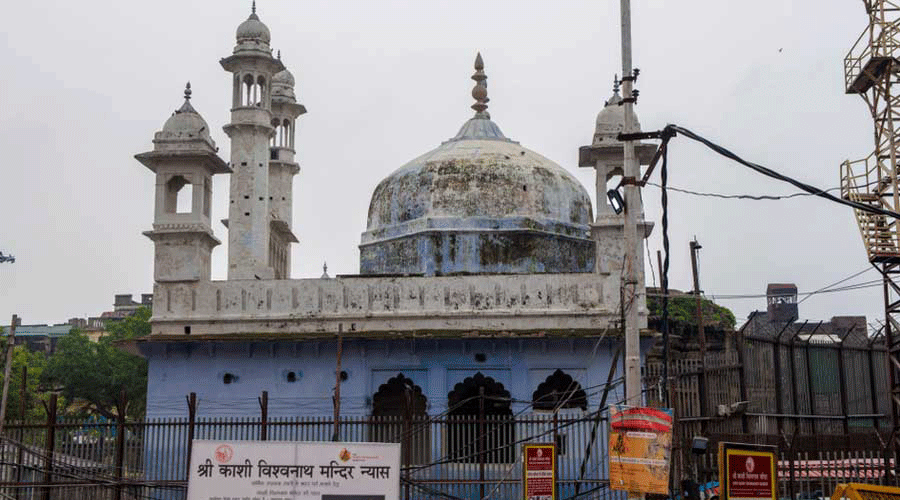A fresh plea has been filed in the Supreme Court seeking intervention in the Gyanvapi mosque dispute.
It contended that Muslims cannot assert any right in respect of any piece of land claiming to be mosque unless it has been constructed on legally owned and occupied virgin land.
The petitioner stated that property vested in deity continues to be the deity’s property irrespective of the fact that any person has taken illegal possession and offering namaz.
The petition, filed by advocate Ashwini Kumar Upadhyay through advocate Ashwani Kumar Dubey, submitted that only those places can be protected, which were erected or constructed in accordance with personal law of the person erected/constructed them, but places erected or constructed in derogation of the personal law, cannot be termed as a ‘place of worship’.
“It is submitted that retrospective cutoff-date was fixed August 15, 1947 to legalise the illegal acts of barbaric invaders. Though, Hindu Law (Temple Character never changes) was ‘Law in force’ at the commencement of the Constitution by virtue of Article 372(1).
“It is submitted that Hindus, Jains, Buddhists, Sikhs have right to profess, practice propagate religion as provided in their religious scriptures and Article 13 prohibits from making law which takes away their rights,” the plea said.
The petition contended that the status of mosque can be given only to such structures which have been constructed according to tenets of Islam and mosques constructed against the provisions contained in Islamic law cannot be termed as mosque.
Anjuman Intezamia Masjid, the management committee of the Gyanvapi mosque, had moved the apex court seeking stay on the survey of the complex.
The top court on May 20 had transferred the civil suit filed by Hindu devotees on Gyanvapi mosque from civil judge (senior division) to district judge, Varanasi saying looking at the complexities and sensitivity of the issue, it is better if a senior judicial officer having an experience of over 25-30 years handles this case.
The apex court directed the district judge to decide on the priority of the application under Order 7 Rule 11 of CPC (on maintainability) filed by the mosque committee, which said that the civil suit is barred by a 1991 law of Parliament, be decided upon the transfer of papers of suit from the civil judge (senior division).












